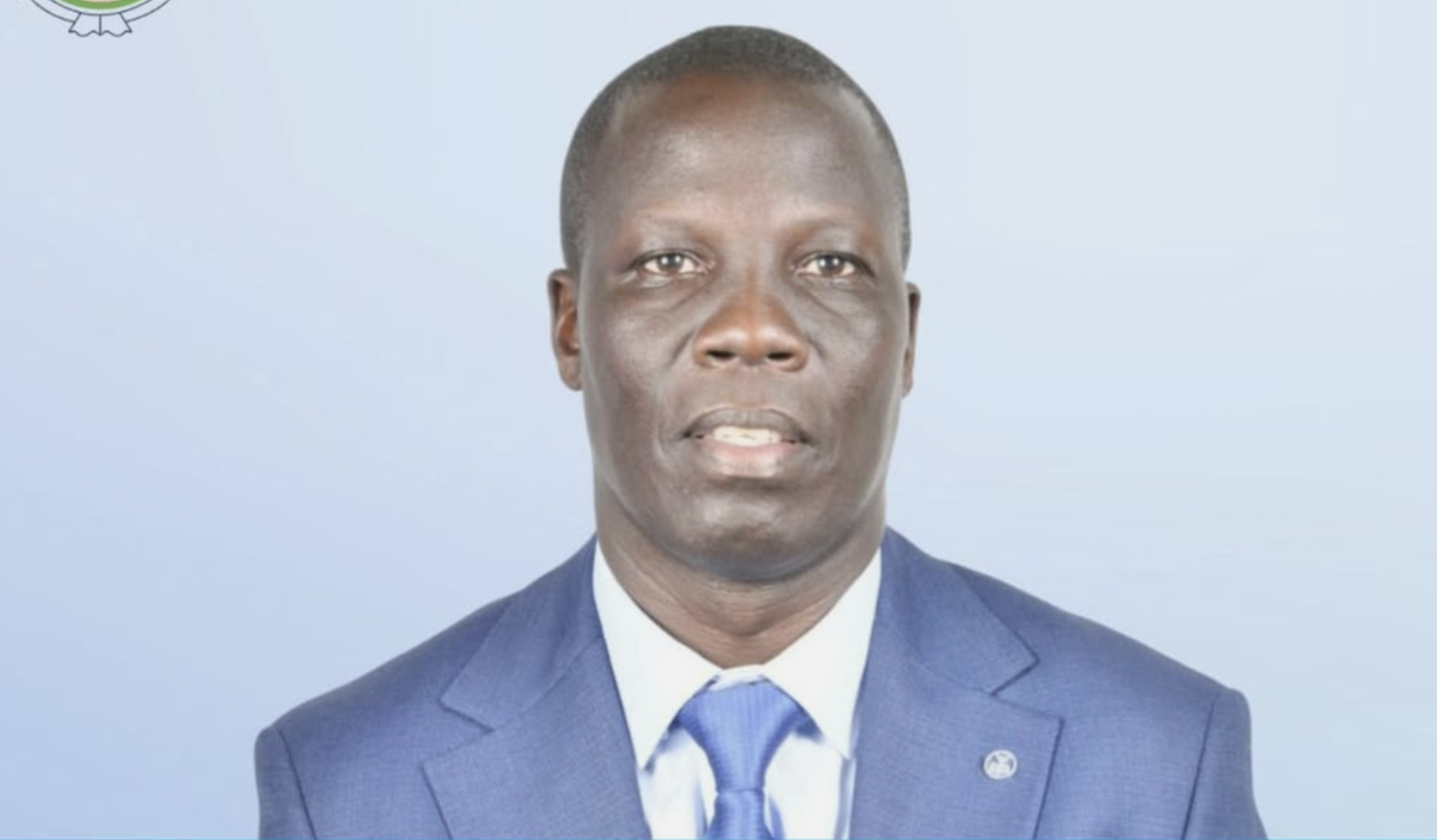 A third of employed Kenyan nurses plan to ditch the profession completely. They cite poor salaries, heavy workloads, lack of respect and a workplace culture that does little to support them.
A third of employed Kenyan nurses plan to ditch the profession completely. They cite poor salaries, heavy workloads, lack of respect and a workplace culture that does little to support them.As thousands of Kenyans prepare to join nursing school this year, a third of employed nurses are quietly planning a complete exit from the profession, a new survey suggests.
Nursing is one of the most sought-after courses in the country, according to the Kenya Universities and Colleges Central Placement Service (KUCCPS), the body responsible for placing students in tertiary institutions.
It was among the four most applied-for courses by students joining universities this year.
Those joining the Kenya Medical Training College (KMTC) were also scrambling for the course. About 27,000 Kenyans this year applied to study nursing at KMTC, which offered only 3,000 slots at certificate and diploma levels. The college provides at least 120 other medical courses.
But even as high school leavers rushed to tick “Nursing” on their KUCCPS forms, a worrying reality was unfolding quietly inside hospital wards.
Nurses, once they land the dream job, are desperate to leave.
A large study published this month by KMTC’s Dr Evans
Kiptulon and colleagues found that “81.4 per cent and 31.4 per cent of
Kenyan nurses intend to leave their jobs and the nursing profession, respectively.”
The study, which surveyed over 400 nurses in Kenya’s 14 biggest referral hospitals, describes the nursing workforce as being at breaking point.
“Kenya’s major referral hospitals face a severe crisis, with 81.4 per cent of nurses expressing intent to leave their jobs—highest in government-owned facilities; national referral hospitals (86.6 per cent), followed by county referral hospitals (81.2 per cent) while lower in private refer ral hospitals (76.3 per cent) respectively,” Dr Kiptulon and colleagues reported in a paper published by the BMC Nursing journal, titled, “Intentions to leave the job and nursing profession among nurses in Kenya’s referral hospitals.”
They added: “Although most nurses (68.5 per cent) intend to stay in the profession, a troubling one-third (31.5 per cent) consider leaving the profession entirely to be a point of concern.”
So, what is making nurses want to pack up and walk away?
Part of the answer lies in how hard they work and how little they feel appreciated. The study found that work-related stress among Kenyan nurses is moderately high, with some areas, like handling death and dying, being extremely stressful. Yet stress alone was not the biggest push factor.
 Kenya National Union of Nurses (KNUN) deputy secretary general Maurice Opetu.
Kenya National Union of Nurses (KNUN) deputy secretary general Maurice Opetu.The real alarm bell is job satisfaction. Only about half of nurses (56 per cent) reported being happy with their work.
Nurses pointed fingers at poor salaries, heavy workloads, lack of respect and a workplace culture that does little to support them.
Dr Kiptulon and colleagues said: “The analysis revealed that nurses with higher job satisfaction were less likely to consider leaving their current jobs or exiting the nursing profession entirely.”
Miklós Zrínyi and Adrienn Ujváriné, both of the University of Pécs in Hungary, co-authored the report.
They defined job satisfaction as the extent to which nurses feel happy, content, and positive about their nursing jobs and profession.
They called for caution in interpreting their findings, saying “the use of self-reported measuring instruments for data collection may introduce social desirability and recall bias, potentially affecting the accuracy of the responses."
However, nurses lobby the National Nurses Association of Kenya (NNAK) supported the findings. NNAK President Collins Otieno Ajwang said there was nothing wrong with the profession itself, but the current employment terms and work environment.
“Nurses would prefer permanent and pensionable terms and to be remunerated well. But terms vary from county to county. Most counties currently only offer locums and contracts. These make nurses mobile, seeking better opportunities,” he told The Star.
He called for the implementation of the Career Progression Guidelines for Nursing Personnel 2025.
The Public Service Commission (PSC) CEO, Paul Famba, in April confirmed PSC had approved the guidelines for nurses employed by the national government.
“The council of governors is advised to customise the career guidelines for use by nursing personnel in county governments in the principle of uniform norms and standards,” he said in a letter to Medical Services PS Ouma Oluga on April 25 this year.
Ajwang said these guidelines will advance job satisfaction as they improve the remuneration of nurses depending on education and competency.
“Nurses should be given a chance to study and advance, but currently, there are no scholarships for nurses. Counties just do employment, but the national government offers training and should give scholarships. Other health cadres get these opportunities. In most occasions, nurses who want to further their studies are denied this opportunity, and that’s why they stagnate and so want to leave the profession entirely,” Ajwang said.
He also mentioned poor working conditions.
“Annually, we graduate 8,000 nurses, but employment is very minimal. The workload is high. Those working get frustrated and develop medical conditions because of the strain and mental challenges,” he said.
“There is also a lack of basic supplies and equipment to offer services in hospitals. You have patients but no commodities to do your work.”
 National Nurses Association of Kenya (NNAK) President Collins Otieno Ajwang.
National Nurses Association of Kenya (NNAK) President Collins Otieno Ajwang.The Kenya National Union of Nurses (KNUN) also acknowledged the study findings and called for better remuneration.
KNUN deputy secretary general Maurice Opetu called for the timely review and implementation of salary increments to reflect workload, qualifications, and cost of living.
“Ensure timely payment of salaries and allowances across all counties, including all the third-party statutory deductions,” he said.
Opetu also said the government should hire more nurses and reduce workload to meet the World Health Organisation's (WHO) recommended nurse-patient ratio.
He called for the immediate implementation of the Career Progression Guidelines to improve training, grading and deployment.
He urged the government to provide scholarships and training opportunities to help nurses specialise in areas such as ICU, oncology, mental health, and neonatal care.
“Also improve work environment and Infrastructure by availing modern equipment, PPE, drugs, and technology. Ensure availability of basic amenities like clean water, electricity, and functional sanitation,” he said.
According to the 2024 TruMerit Nurse Migration Report, about 800 Kenyan nurses migrate to work abroad every year.
The Kiptulon study confirms that leaving the country is high on the wish list for most Kenyan nurses. A large chunk said they were considering looking for work outside Kenya within the next five years.
Kenya is not alone in poor retention of nurses. Hospitals around the world are grappling with burnout, early retirements and resignations.
A 2024 report by the Royal College of Nursing in the UK warned of a shortfall of tens of thousands of nurses, forcing the government to rely heavily on overseas recruits. In Canada, the Canadian Federation of Nurses Unions said burnout and poor working conditions have pushed many nurses to leave the profession or move into better-paying agency work.
Ajwang said the cycle will continue unless the government improves working conditions. “Thousands of Kenyans will continue to line up to join nursing school each year, while those already in the job quietly plan their exit,” he said.
Demographic Characteristics of the Nurses Interviewed
|
Characteristic |
Category |
Frequency
(%) |
|
Gender |
Female |
250 (58.3%) |
|
Male |
179 (41.7%) |
|
|
Marital Status |
Married |
285 (66.4%) |
|
Single |
133 (31.0%) |
|
|
Widowed |
11 (2.6%) |
|
|
Age Group (years) |
21–30 |
179 (41.7%) |
|
31–40 |
166 (38.7%) |
|
|
>40 |
84 (19.6%) |
|
|
Work Experience |
1–15 years |
348 (81.1%) |
|
>16 years |
81 (18.9%) |
|
|
Education Level |
Certificate in Nursing |
7 (1.6%) |
|
Diploma in Nursing |
143 (33.3%) |
|
|
Degree in Nursing |
229 (53.4%) |
|
|
Master’s Degree |
47 (11.0%) |
|
|
PhD |
3 (0.7%) |
|
|
Employment Type |
Permanent and Pensionable |
254 (59.2%) |
|
Fixed-Term Contract |
175 (40.8%) |
|
|
Position |
General Staff |
315 (73.4%) |
|
Leadership Position |
114 (26.6%) |











